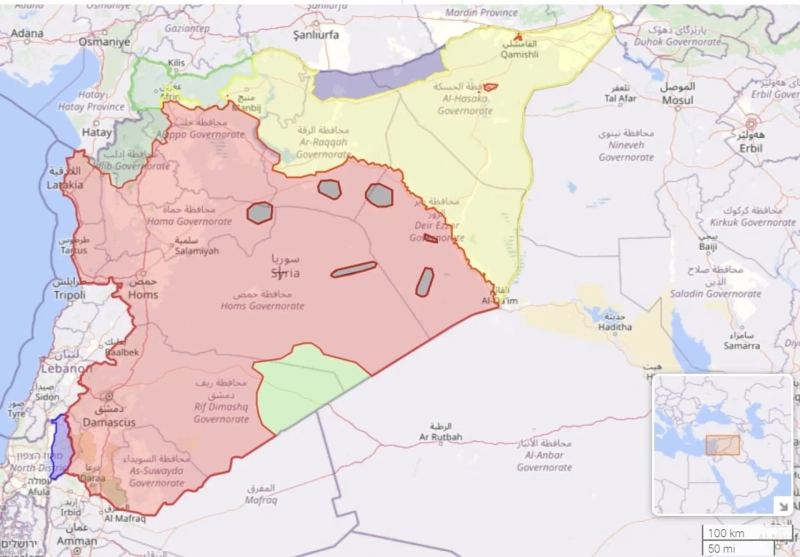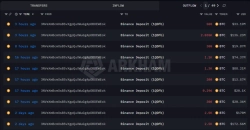간단 요약
- 시리아 내전이 재점화되며 러시아와 이란의 역할이 다시 주목받고 있다는 분석이다.
- 이번 내전은 코로나19 팬데믹 이후 중동 지역에서의 최초의 대규모 분쟁으로, 경제적 부담이 가중될 가능성이 크다.
- 특히, 시리아 정부군의 북서부 지역 최대 군사 기지 점령은 국제 정세와 투자 환경에 불확실성을 증가시킬 수 있다고 전했다.
흔들리는 중동 균형에 시리아 내전 재점화
반군, 북서부 최대 정부군 기지 점령
"이스라엘이 정부군 동맹 약화시킨 결과"
이-헤즈볼라 휴전은 소규모 교전에 흔들
러 "우크라 의사결정 기지 공격 가능"
내전 중인 시리아에서 반군이 4년만에 최대 규모 진격에 성공했다. 정부군을 지원하던 러시아와 이란의 영향력이 각각 우크라이나·중동 전쟁으로 인해 약해진 틈을 노렸다. 코로나19 팬데믹 이후 소강상태에 접어든 시리아 내전이 다시 격화해 서방 세력과 러시아·이란 등 권위주의 세력 간의 대리전이 더욱 확대될 수 있다는 전망도 제기된다.
흔들리는 시리아 힘의 균형
CNN 등에 따르면 시리아 반군은 27~28일(현지시간) 대규모 공세를 통해 시리아 북서부 최대도시 알레포 인근에서 15개 이상 마을을 확보하고 지역 최대 정부군 기지인 46기지를 점령했다. 시리아인권관측소는 이틀 간의 교전으로 반군 측 약 100명과 정부군 54명 이상이 사망했다고 전했다. 정부군을 돕던 이란 혁명수비대 고위사령관 키우마르스 푸르-하셰미 준장도 사망했다.
반군 측은 약 10시간만에 100㎢ 규모의 영토를 점령하고 알레포시에서 약 5㎞ 떨어진 곳까지 진격했다고 밝혔다. 시리아 정부군은 러시아군과 함께 반군 점령 지역을 공습해 공세를 저지했다. 전쟁이 교착상태에 빠진 2020년 이후 반군의 최대 규모 진격이라는 평가다.

2011년 발생한 시리아 내전은 러시아와 시아파 이슬람 종주국인 이란이 정부군을, 미국과 튀르키예, 사우디아라비아 등이 반군을 지원하는 국제 대리전으로 전개됐다. 레바논 무장정파 헤즈볼라와 이라크·시리아 이슬람국가(ISIS), 쿠르드 민병대 등도 가세하며 진흙탕 싸움을 벌였으나 2020년 코로나19 팬데믹으로 소강상태에 접어들었다.
한동안 잠잠했던 내전은 최근 중동 지역 힘의 균형이 흔들리며 다시 불붙는 흐름이다. 정부군을 지원하던 헤즈볼라와 이란이 이스라엘과의 전쟁에 병력을 집중하고 러시아 역시 우크라이나 전쟁에 신경쓰는 사이 반군은 공세를 강화하고 있다. 나타샤 홀 전략국제문제연구소(CSIS) 중동 수석연구원은 "이스라엘이 헤즈볼라와 이란과 같은 시리아 정권의 동맹을 약화시키고 있기 때문에 정부군 측 민병대는 반군을 억제하기 위해 공격을 강화하고 있다"고 분석했다.
올 연말 시리아 내전이 다시 격화할 것이라는 우려도 제기된다. 나자트 로흐디 유엔 시리아 담당 부특사는 지난 22일 유엔 안전보장이사회 회의에서 "올해는 2020년 이후 (내전이) 가장 폭력적인 해가 될 가능성이 높으며 더 큰 파괴의 가능성이 다가오고 있다"고 전망했다.
이스라엘-헤즈볼라 휴전 의지도 시험대
이스라엘과 헤즈볼라는 1년여 간의 분쟁 끝에 지난 27일 휴전에 들어갔지만 소규모 교전이 이어지면서 양측의 평화 의지가 시험대에 올랐다.
28일 이스라엘방위군(IDF)은 성명을 통해 "여러 용의자가 차량을 타고 레바논 남부에 도착해 휴전 조건을 위반했다"라며 "IDF가 그들에게 발포했다"고 밝혔다. IDF는 레바논 남부에 있는 헤즈볼라의 중거리 로켓 보관시설도 공습하며 "군은 레바논 남부에서 휴전 합의를 위반하는 모든 행동을 저지하고 있다"고 했다. 베냐민 네타냐후 이스라엘 총리는 "휴전 협정이 위반될 경우 격렬한 전투에 대비하라"고 군에 지시했다
하산 파드랄라 헤즈볼라 의원은 이날 "이스라엘군이 국경 마을로 돌아가는 사람들을 공격하고 있다"라며 "오늘날 이스라엘은 이런 형태로 위반을 저지르고 있다"고 비판했다.
러시아는 극초음속 미사일로 우크라이나 수도의 '의사결정 기지'를 폭격할 수 있다고 위협하며 긴장감을 고조시켰다.
이날 타스통신 등에 따르면 블라디미르 푸틴 대통령은 "현재 국방부와 총참모부가 타격 목표물을 선정하고 있다"라며 "군사시설이나 방위산업시설, 키이우의 의사 결정 기지가 될 수 있다"라고 말했다. 키이우 대통령실이나 국방부 등 지휘 시설 타격 가능성을 내비친 것이다.
푸틴 대통령은 지난 21일 발사한 초음속 미사일 오레시니크 등으로 키이우 의사결정기지를 공격할 수 있느냐는 질문에 "모든 것이 가능하다"고 답했다. 그러면서 "우크라이나가 모스크바와 상트페테르부르크 등 우리의 중요 시설을 공격하려고 계속 시도하고 있다는 점을 명심해야 한다"고 강조했다.
김인엽 기자 inside@hankyung.com

한경닷컴 뉴스룸
hankyung@bloomingbit.io한국경제 뉴스입니다.





![고용 서프라이즈·AI 부담 겹쳤다…비트코인 7만달러 저항 속 변동성 확대 우려 [강민승의 트레이드나우]](https://media.bloomingbit.io/PROD/news/95764d70-5a3d-4300-b834-25c6a366c3a5.webp?w=250)